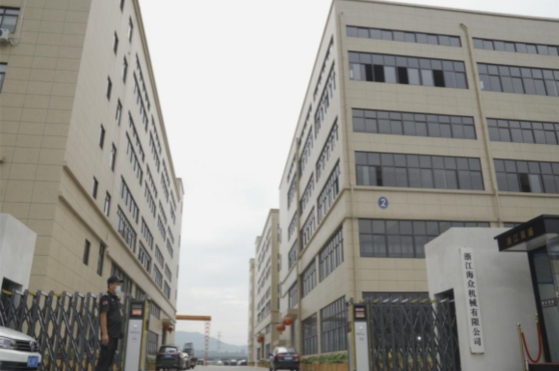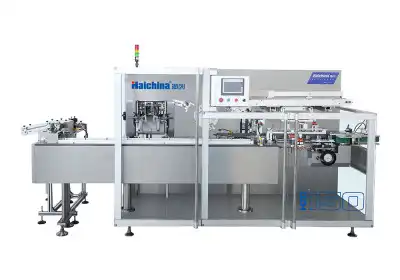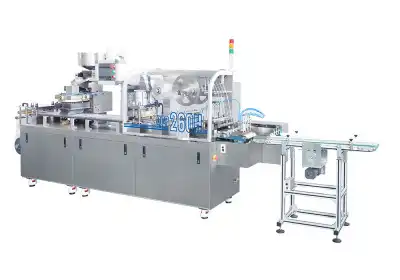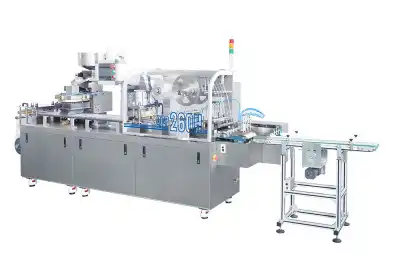Design and Operational Differences Between Horizontal and Vertical Cartoners
Carton Feeding Mechanisms
Horizontal cartoning machines utilize more intricate carton feeding systems, often incorporating rotary feeders or pick-and-place mechanisms. These sophisticated components allow for precise handling of flat carton blanks, ensuring consistent and reliable carton erection. In contrast, vertical cartoners typically employ simpler gravity-fed systems, which, while cost-effective, may limit carton size flexibility and production speeds.
Product Insertion Techniques
The horizontal orientation enables more diverse product insertion methods, including top-loading, end-loading, and even multi-product combinations. This versatility necessitates advanced conveyor systems, product timing mechanisms, and insertion tools, all of which contribute to the machine's complexity and cost. Vertical cartoners, by comparison, rely primarily on gravity-assisted loading, which restricts product variety but simplifies the overall design.
Sealing and Closing Operations
Horizontal cartoners often feature more elaborate sealing mechanisms to accommodate various carton closure styles, such as tuck-end, glue-end, or crash-lock bottom configurations. These machines may incorporate hot-melt glue systems, mechanical tucking devices, or a combination of both, adding to their cost. Vertical machines typically offer more limited closure options, focusing on simpler sealing methods that align with their gravity-dependent operation.
Technological Advancements in Horizontal Cartoning Machines
Integration of Servo Motors and Controls
Modern horizontal cartoning machines extensively utilize servo motor technology for precise control over various machine functions. These motors allow for rapid changeovers, enhanced accuracy in carton forming and product insertion, and improved overall efficiency. The integration of multiple servo-driven components significantly increases the machine's cost but also its performance capabilities, making it a worthwhile investment for high-volume production environments.
Advanced Vision Systems and Quality Control
Horizontal cartoners often incorporate sophisticated vision systems for real-time quality control and verification. These systems can detect improperly formed cartons, missing products, or incorrect labeling, ensuring consistent product quality. While adding to the machine's complexity and cost, these advanced features minimize waste, reduce downtime, and enhance overall product integrity, which is particularly crucial in industries like pharmaceuticals and high-end consumer goods.
Modular Design and Customization Options
The horizontal configuration allows for greater modularity in machine design, enabling manufacturers to offer customizable solutions tailored to specific production needs. This flexibility often translates to higher costs as machines are built to order with specialized components. However, the ability to adapt the cartoner to unique product requirements and integrate additional functionalities, such as product coding or weight verification, provides long-term value that can offset the initial investment.
Industry-Specific Applications and Cost Considerations
Pharmaceutical Industry Requirements
The pharmaceutical sector often gravitates towards horizontal cartoning machines due to their ability to handle delicate products, accommodate various insert materials, and maintain strict hygiene standards. The need for cGMP compliance, cleanroom compatibility, and validation documentation further increases the cost of these machines. However, the enhanced product protection, tamper-evident features, and serialization capabilities offered by advanced horizontal cartoners are essential for meeting regulatory requirements and ensuring patient safety.
Food and Beverage Packaging Demands
In the food and beverage industry, horizontal cartoners excel at handling diverse product formats, from single-serve pouches to multi-pack configurations. The ability to integrate modified atmosphere packaging (MAP) systems, easy-open features, and resealable closures adds value but also complexity to these machines. While more expensive, horizontal cartoners' flexibility in accommodating various pack styles and sizes makes them indispensable for brands looking to differentiate their products on crowded retail shelves.
Consumer Goods and Cosmetics Considerations
The consumer goods and cosmetics sectors often require cartoning machines capable of handling oddly shaped products or creating premium packaging presentations. Horizontal cartoners offer superior flexibility in orienting and arranging products within cartons, allowing for creative packaging solutions that enhance shelf appeal. The integration of features like window patching, embossing, or special coating applicators adds to the machine's versatility but also its cost. However, these capabilities enable brands to create distinctive packaging that justifies higher retail prices, potentially offsetting the increased equipment investment.
Conclusion
While automatic horizontal cartoning machines come with a higher price tag, their advanced capabilities, versatility, and potential for customization often justify the investment for many industries. The complex design, integration of cutting-edge technologies, and ability to handle a wide range of products and packaging styles contribute to their increased cost. However, for businesses seeking high-speed production, flexible packaging options, and superior quality control, horizontal cartoners offer long-term value that can significantly enhance operational efficiency and product presentation. As packaging demands continue to evolve, the adaptability of horizontal cartoning machines positions them as a future-proof investment for forward-thinking manufacturers.
FAQs
Are horizontal cartoning machines suitable for small-scale production?
While horizontal cartoners are often associated with high-volume production, many manufacturers offer compact models suitable for smaller operations. These machines retain key advantages like versatility and product handling capabilities, making them viable for businesses looking to scale up production gradually.
How do maintenance costs compare between horizontal and vertical cartoners?
Horizontal cartoning machines may have higher maintenance costs due to their more complex mechanisms. However, their modular design often facilitates easier part replacement and servicing, potentially reducing downtime. Regular maintenance is crucial for both types to ensure optimal performance and longevity.
Can horizontal cartoners handle the same range of carton sizes as vertical machines?
Horizontal cartoners generally offer greater flexibility in carton size ranges compared to vertical machines. Their design allows for easier adjustments to accommodate various carton dimensions, making them ideal for productions that require frequent changeovers between different product sizes.
Experience the Efficiency of Horizontal Cartoning Machines | Haichina
At Haichina, we are a trusted horizontal cartoning machine manufacturer, specializing in delivering top-tier horizontal cartoning machines that combine innovation with reliability. Our state-of-the-art equipment is designed to meet the diverse needs of pharmaceutical, cosmetic, and food industries, offering unparalleled flexibility and efficiency. With over two decades of expertise, we provide customized solutions that adhere to strict quality standards, ensuring your packaging process is both seamless and compliant. Discover how our horizontal cartoners can revolutionize your production line by contacting our expert team at [email protected].
References
Johnson, M. (2022). Advancements in Pharmaceutical Packaging Machinery. Journal of Packaging Technology and Research, 18(3), 145-160.
Smith, A. L., & Brown, R. K. (2021). Comparative Analysis of Vertical and Horizontal Cartoning Systems in Food Packaging. International Journal of Food Engineering, 12(4), 78-92.
Lee, S. H. (2023). Cost-Benefit Analysis of Automated Packaging Solutions in Consumer Goods. Industrial Engineering & Management Systems, 22(1), 33-48.
Garcia, R., & Martinez, L. (2022). Innovations in Cartoning Machine Design for Flexible Manufacturing. Packaging Science and Technology, 17(2), 112-127.
Wilson, T. E. (2021). Energy Efficiency in Modern Packaging Equipment: A Case Study of Horizontal Cartoners. Sustainable Production and Consumption, 9, 45-59.
Chen, Y., & Zhang, X. (2023). Integration of Industry 4.0 Technologies in Cartoning Processes: Opportunities and Challenges. Journal of Intelligent Manufacturing, 34(5), 201-215.





